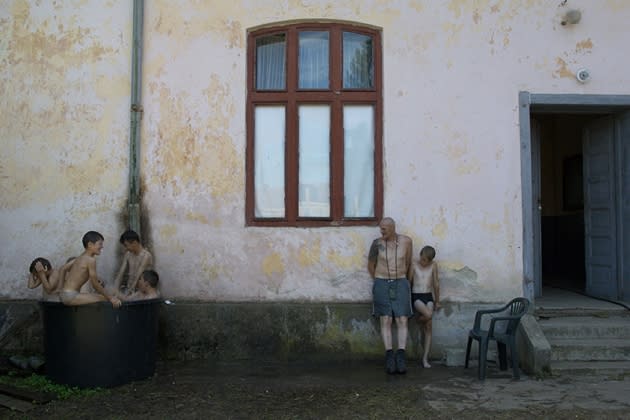Ulrich Seidl’s ‘Sparta’ Will Premiere at San Sebastian Despite Child Exploitation Allegations (EXCLUSIVE)
- Oops!Something went wrong.Please try again later.

Ulrich Seidl’s “Sparta” has been pulled from the Toronto International Film Festival amid allegations of impropriety and child exploitation against the director, but its premiere at next week’s San Sebastian Film Festival will continue as planned, Variety can reveal.
A spokesperson for the Spanish festival tells Variety on behalf of festival management that “Sparta” will remain in competition.
More from Variety
Providing a three-point list explaining their reasoning, San Sebastian said “the festival team assesses the films after their viewing according to their interest and quality” and that the event “does not have the ability to judge how a film has been shot and whether a crime has been committed in the course of the filming. If anyone has any evidence of a crime, they should report it to a judge.”
The statement concludes: “Only a court order would lead us to suspend a scheduled screening.”
This means that “Sparta” is still very much on track for its Sept. 18 world premiere at San Sebastian, where it will compete for the festival’s top Golden Shell prize as part of the Official Selection. Actor Glenn Close is overseeing the jury for the 70th edition of the fest, which includes French casting director and filmmaker Antoinette Boulat; Danish director and screenwriter Tea Lindeburg; Argentinian producer Matías Mosteirín; Spanish author and journalist Rosa Montero; Lesotho filmmaker and visual artist Lemohang Jeremiah Mosese; and Icelandic director and screenwriter Hlynur Pálmason.
The news comes a day after Toronto withdrew “Sparta” following an explosive investigation by German news magazine Der Spiegel.
The investigation, published on Sept. 2, alleges that Seidl did not communicate the film’s theme of pedophilia to its young actors, who were between the ages of 9 and 16 and not from professional backgrounds. It’s also alleged that the actors were confronted with alcoholism, nudity and violence during the production without adequate preparation or support.
Der Spiegel says its journalists spent more than six months investigating the production of “Sparta” in Germany, Austria and Romania, and spoke to dozens of crew members, including some actors.
Seidl has denied all allegations. In a lengthy statement addressing the accusations posted to his website, the director wrote: “My films are not the product of my manipulating my actors, misrepresenting the film to them, much less abusing them. On the contrary: Without the trust that we build over weeks and months together, the long shooting periods my films require would be impossible. I have the greatest respect for all my actors and would never take a decision that could in any way endanger their physical and psychological wellbeing.”
Seidl is a prominent European director best known for his raw, hard-edged German-language movies that often feature explicit sex scenes. His films “Import Export” (2007) and “Paradise: Love” (2012) both competed for the Palme d’Or at Cannes.
His last film, “Rimini,” screened as part of the Official Competition at the Berlinale earlier this year. The movie centers on has-been singer Richie Bravo who returns to his hometown of Rimini in the dead of winter to find the money demanded from him by his estranged daughter. “Sparta” is positioned as a companion piece to “Rimini,” and follows the brother of Richie Bravo.
“Sparta” centers on the brother, who is in his 40s, as he moves to a remote part of Austria to start a new life, and together with a group of young boys from the area, transforms a dilapidated school into a fortress. Throughout the process, however, the man is forced to confront his secret paedophilic urges.
The film was scheduled for five screenings in Toronto, including press and industry screenings, before being pulled ahead of its world premiere on Sept. 9.
Best of Variety
'The Sopranos' Gets the Funko Pop Treatment in New Collectibles Release
From 'The Sandman' to 'Blonde': Books Made Into Movies and TV Series That You Should Read
Jennette McCurdy's Provocative Book 'I'm Glad My Mom Died' Is Already a No. 1 Bestseller
Sign up for Variety’s Newsletter. For the latest news, follow us on Facebook, Twitter, and Instagram.
